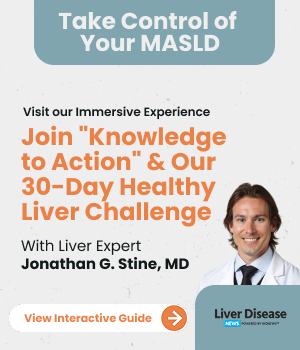Phase 1b/2 trial of golexanolone for PBC behavioral symptoms advances
Enrolling patients in Europe with significant problems with cognition, fatigue

Golexanolone, Umecrine Cognition’s investigational oral therapy, was generally safe and well tolerated in adults with primary biliary cholangitis (PBC) and clinically significant problems with cognition and fatigue.
That’s according to data from the first part of a Phase 1b/2 clinical trial (EudraCT2022-000422-16), which prompted an internal safety review committee to recommend the study advance to its second part.
This next phase will assess the therapy’s preliminary efficacy and further investigate treatment safety and tolerability in up to 84 adults enrolled at sites in the U.K., Germany, Italy, and Serbia. Recruitment of a first patient is anticipated in the coming months, with top-line results expected in the first half of 2025.
Golexanolone aims to ease behavioral symptoms by targeting GABA-A receptors
“In previous clinical and preclinical studies, … golexanolone has shown strong potential to counteract an incorrect suppression of brain activity, causing extreme fatigue and difficulty with concentration,” Viktor Drvota, CEO of Karolinska Development, which owns 73% of Umecrine, said in a company press release.
“We are happy that the current study is progressing and look forward to the results from the second part,” Drvota added.
PBC is a chronic form of cholangitis, a condition marked by inflammation of the bile ducts, a series of tubes that carry bile, a digestive fluid, from the liver to the intestines. This leads to a toxic accumulation of bile in the liver, damaging the organ, and bile acid leakage into the bloodstream.
PBC symptoms typically include pain, fever, and jaundice (yellowing of the skin and eyes). However, more than half of patients also experience significant fatigue and cognitive problems that affect life quality but are not associated with liver disease severity.
While the mechanisms underlying behavioral symptoms in PBC are not fully understood, elevated levels of a molecule called allopregnanolone, which stimulates receptors proteins in the brain called GABA-A, are thought to play a role.
Overactivation of GABA-A receptors causes cognitive impairment, such as memory and learning disturbances and sedation, and previous studies have shown that high blood levels of allopregnanolone significantly associate with severe cognitive symptoms in PBC.
Golexanolone is an orally available small molecule that blocks the action of allopregnanolone on GABA-A receptors. Unlike other medications that inhibit these receptors, golexanolone does not entirely suppress the receptors’ function, Umecrine reports. As such, it is expected to avoid causing serious side effects, such as seizures and unconsciousness.
The experimental oral therapy is designed to ease fatigue and cognitive symptoms in people with PBC and other liver conditions associated with behavioral symptoms.
Treatment has shown safety and effectiveness in separate clinical trial
In a preclinical model of cholestatic liver disease, golexanolone treatment was shown to eliminate fatigue and cognitive symptoms, the company reported in a separate release.
A Phase 2a trial testing the therapy in people with hepatic encephalopathy, a condition marked by brain dysfunction caused by severe liver disease, also showed that golexanolone safely enhanced cognitive function in these patients.
The ongoing Phase 1b/2 trial is testing golexanolone in PBC patients with significant fatigue and cognitive symptoms. All participants have either no cirrhosis (permanent liver scarring) or compensated cirrhosis (Child-Pugh class A).
Its first part assessed the safety, tolerability, and pharmacokinetics of golexanolone at 40 mg oral capsules, taken twice daily, for five days. Pharmacokinetics refers to the therapy’s movement into, through, and out of the body. These data guided dosing for the second part of the study.
In the trial’s Phase 2, enrolled patients, ages 18 to 75, will receive golexanolone twice daily at two dose levels for 28 days.
Goals here include assessing the therapy’s impact on health-related quality of life, fatigue, cognitive function, daytime sleepiness, and the investigator’s overall impression of treatment effect. The trial’s protocol consists of a planned interim analysis when one-third of part two’s participants have been evaluated.








